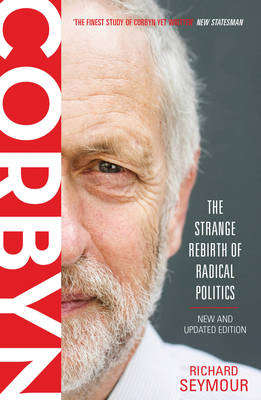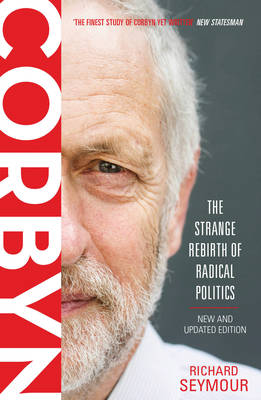
- Retrait gratuit dans votre magasin Club
- 7.000.000 titres dans notre catalogue
- Payer en toute sécurité
- Toujours un magasin près de chez vous
- Retrait gratuit dans votre magasin Club
- 7.000.0000 titres dans notre catalogue
- Payer en toute sécurité
- Toujours un magasin près de chez vous
14,95 €
+ 29 points
Description
How Jeremy Corbyn, the radical left candidate for the Labour leadership, won twice--and won big
In the 2017 general election, Jeremy Corbyn pulled off an historic upset, attracting the biggest increase in the Labour vote since 1945. It was another reversal of expectations for the mainstream media and his 'soft-left' detractors. Demolishing the Blairite opposition in 2015, Corbyn had already seen off an attempted coup. Now, he had shattered the government's authority, and even Corbyn's most vitriolic critics have been forced into stunned mea culpas.
For the first time in decades, socialism is back on the agenda--and for the first time in Labour's history, it defines the leadership. Richard Seymour tells the story of how Corbyn's rise was made possible by the long decline of Labour and by a deep crisis in British democracy. He shows how Corbyn began the task of rebuilding Labour as a grassroots party, with a coalition of trade unionists, young and precarious workers, students and 'Old Labour' pugilists, who then became the biggest campaigning army in British politics. Utilizing social media, activists turned the media's Project Fear on its head and broke the ideological monopoly of the tabloids. After the election, with all the artillery still ranged against Corbyn, and with all the weaknesses of the Left's revival, Seymour asks what Corbyn can do with his newfound success.Spécifications
Parties prenantes
- Auteur(s) :
- Editeur:
Contenu
- Nombre de pages :
- 384
- Langue:
- Anglais
Caractéristiques
- EAN:
- 9781786632999
- Date de parution :
- 05-12-17
- Format:
- Livre broché
- Format numérique:
- Trade paperback (VS)
- Dimensions :
- 127 mm x 196 mm
- Poids :
- 399 g

Les avis
Nous publions uniquement les avis qui respectent les conditions requises. Consultez nos conditions pour les avis.






